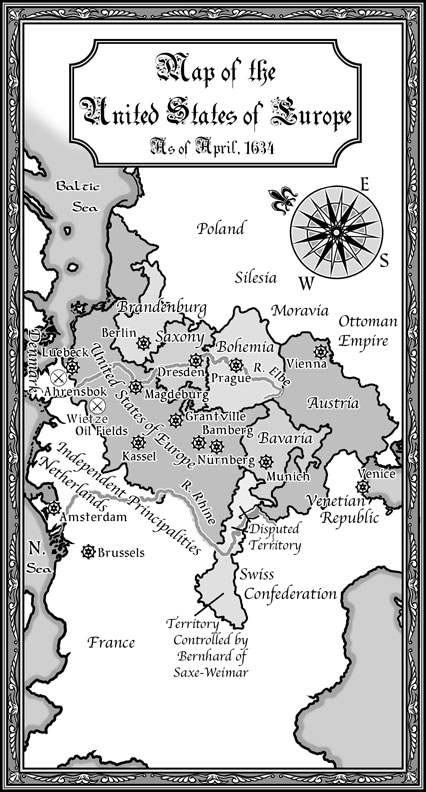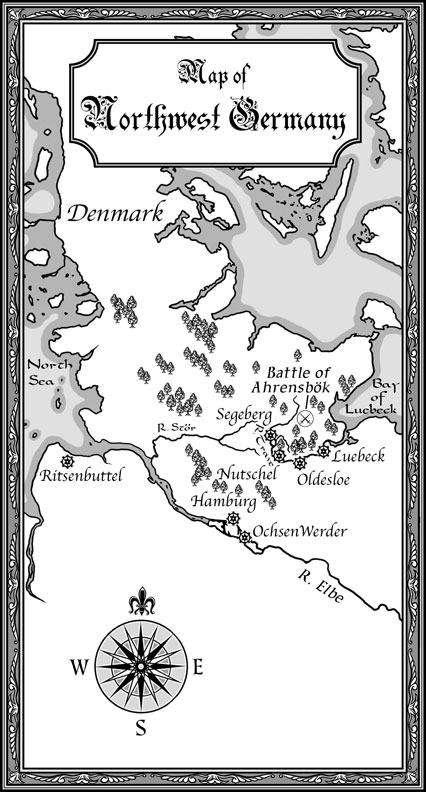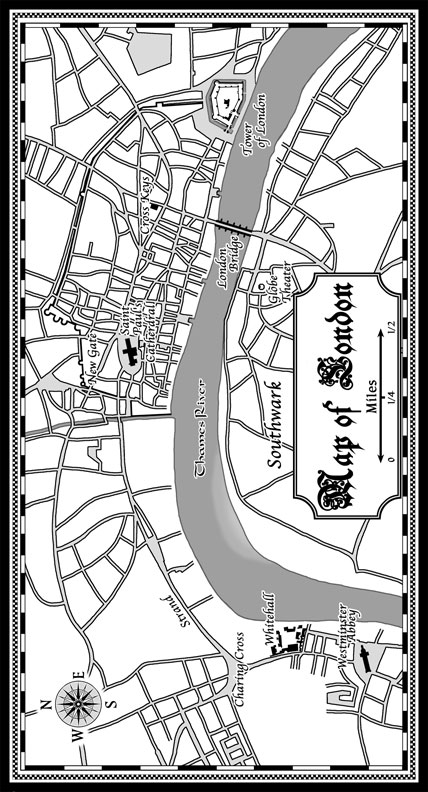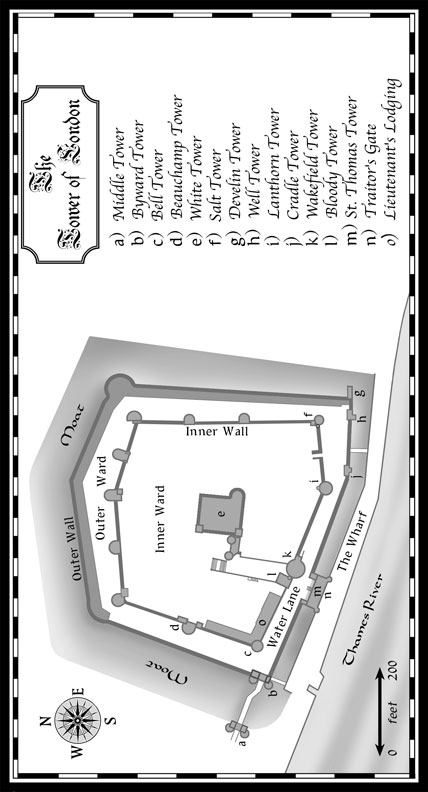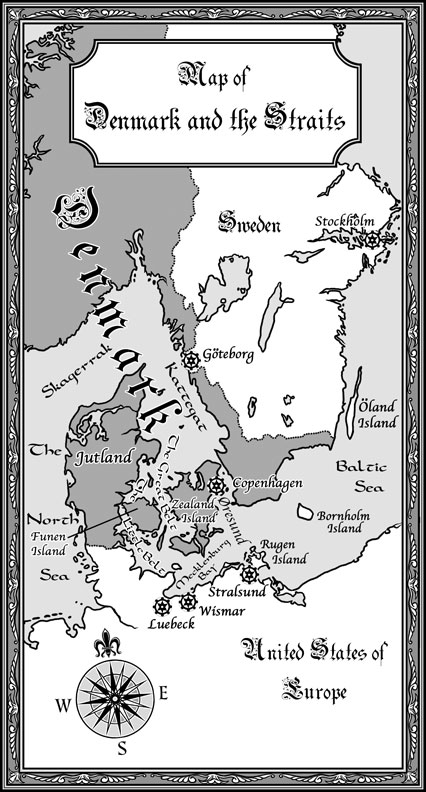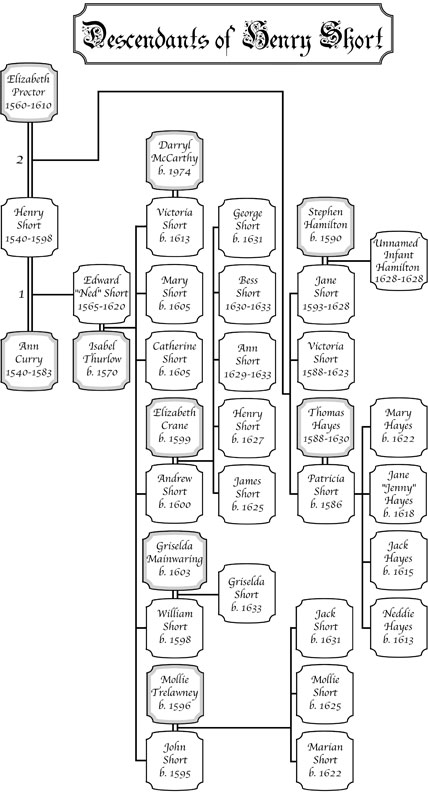1634
The Baltic War
by
Eric Flint
2007

All Your Books Are Belong To Us !
http://c3jemx2ube5v5zpg.onion
1634
The Baltic War
Copyright 2007 Eric Flint
Copyright 2007 by Eric Flint & David Weber
A Baen Books Original
Baen Publishing Enterprises
P.O. Box 1403
Riverdale, NY 10471
www.baen.com
ISBN 10: 1-4165-2102-X
ISBN 13: 978-1-4165-2102-0
Cover art by Tom Kidd
Maps by Randy Asplund
After a cosmic accident sets the modern West Virginia town of Grantsville down in war-torn seventeenth century Europe, the United States of Europe is forged in the fire of battle. The Baltic War reaches a climax as France, Spain, England, and Denmark besiege the U.S.E. in the Prussian stronghold of Lubeck. The invention of ironclads, the introduction of special force tactics during a spectacular rescue operation at the Tower of London the up-timers plan to use every trick in the time traveler's book to avoid a defeat that will send Europe back to a new Dark Age!
Multiple New York Times best-seller and creator of the legendary "Honorverse" series David Weber teams with New York Times best-selling alternate history master Eric Flint to tell the tale of the little town that remade a continent and rang in freedom for a battle-ravaged land in the latest blockbuster addition to Flint's "Grantsville" saga!
Contents
To Anna Lou Ballew McQuade
Maps
Acknowledgments
First, credit where credit is due:
As he did for us in 1633, Mike Spehar wrote the first drafts of all the flying scenes that appear in 1634: The Baltic War. Without his expertise as a pilot, those scenes would have necessarily lacked much of their existing detail.
Bob Gottlieb developed the industrial accident portrayed in Chapters 2 and 3 of the novel, and wrote a rough draft depicting the way it would unfold.
In addition, I'd like to thank:
Michael Barthelemy, for his gorgeous period maps of the Tower of London.
Anette Pedersen, Vincent Coljee and Jens Guld, among others, for their assistance regarding Denmark and Copenhagen in the 17th century.
And the editorial board of the Grantville Gazette, especially Virginia DeMarce and Paula Goodlett, for their careful scrutiny of the manuscript and spotting a number of errors and continuity lapses.
For those readers not familiar with it, the Grantville Gazette is an electronic magazine devoted to the 1632 series. There's an advertisement explaining how to subscribe at the end of the book.
Finally, anyone who enjoyed this book and would be interested in participating in the online discussion regarding the 1632 series are welcome to join it. You can do so as follows:
1) Go to: www.baen.com
2) Select Baen's Bar from the menu across the top.
3) Fill out a quick and simple registration. Thereafter, you can simply log in.
4) Once you get into the Bar, select the conference titled 1632 Tech Manual.
5) Then, lurk or post, as you choose. Most of all, enjoy yourself.
Part One : A mist that is like blown snow is sweeping over all
Chapter 1
Hans Richter Field Near Grantville, in the State of Thuringia December 1633
Colonel Jesse Wood turned off the computer in his office, removed the floppy disk and carefully slid it into its protective sleeve. It was a copy of the original disk he had already placed in an envelope and addressed to Mike Stearns, the Prime Minister of the United States of Europe. The copy itself was destined for Admiral John Simpson, Chief of Naval Operations, advisor to the head of all the USE's armed forces, and one of the chief architects of the new nation's growing industrial capability in Magdeburg.
And how he manages all three, I have no idea, Jesse thought. Lord knows I always feel about two weeks behind in my sleep. At least this report should cheer him up.
The thought wasn't as sour as it would have been some months earlier. In fact, it was rather respectful. Whatever Jesse thought of the way John Simpson had conducted himself in the two years following the Ring of Fire, the man's actions after Mike Stearns had put him in charge of the new little navyespecially during and after the Battle of Wismarhad pretty much washed all that old antagonism away. As it had, Jesse knew, for Stearns himself. Simpson might have been a disaster as a political leader, but there was no denying that as a pure and simple military commander he had a lot going for him. Even if his insistence on the punctilio of military protocol still rubbed Jesse the wrong way, now and then.
The colonel squinted out the window at the unseasonably bright, late afternoon sunlight, catching a glimpse of Master Sergeant Friedrich Krueger giving the welcoming briefing to a bunch of newly arrived recruits. The sergeant was not being gentle about it. A recruit was on the ground, rubbing his head, no doubt after having been instructed in some fine detail of service courtesy. The tall German NCO had well earned his nickname of Freddy Krueger, although Jesse doubted he understood the allusion.
He watched as the sergeant pointed to the white stripes on the sleeve of the dark brown jumpsuit that was his uniform. Perhaps he does, though, Jesse reflected. God knows they made enough of those crappy movies. One's sure to be in town somewhere.
Jesse made a mental note to ask Major Horton to have another word with the NCO about his temper. He had to admit that Krueger's techniques were highly effective, if rather crude. Still, there was no sense in beating men who had just arrived, since they probably didn't yet have enough sense to absorb the lesson. Looking at the assembled recruits, Jesse felt he knew the source of Krueger's irritation. They were a very mixed bag, as all of the latest had been. Recalling the roster on his desk, Jesse thought he could spot their origins, for the most part. Among the fifteen men, he saw several Dutch, a couple of Bavarians, other Germans of all regions and dialect, two Spanish deserters, and a Swede. One man, by his dress, appeared to be either a nobleman or the son of a rich merchant.
I wonder what he's running from? Jesse mused. Well, it doesn't matter, he's in Freddy's gentle care, now. I'll wager not one of them knows a word of English. I wonder how many of them brought families with them?
They were refugees for the most part, from all over Europe. The same sort of people who filled the ranks of most of the armies of the era. Mercenaries, at bottom, regardless of the official label of citizen soldiers they had in the United States of Europe.
















